Notwithstanding all the tall talk of closer cooperation between them, the third Trilateral Summit of Afghanistan, Iran and Pakistan which was held in Islamabad in the third week of February was for all intents and purposes more an exercise in diplomatic signalling than anything else. The regimes in all the three countries had major issues with the US – Iran was feeling the pinch of US and EU sanctions and feared a possible outbreak of hostilities, Afghanistan and Pakistan were feeling sidelined by the dialogue between the US and Taliban in Qatar. Against this backdrop, the somewhat hastily convened Summit offered a platform to all three countries to demonstrate to the US that they had fallback options if relations with the sole superpower reached breakpoint. But this show of autonomy of action was also an attempt, at least on the part of Afghanistan and Pakistan, to draw the attention of the Americans to their demand for being taken on board by the US in its future game-plan for the region.
How much the three countries succeeded in their diplomatic objective vis-a-vis the US is not quite clear. The US doesn't seem very impressed either by the Iranian show of defiance or by its efforts to break the stranglehold of sanctions. There also doesn't appear to be any major change in the US approach on how much it wants to keep the Afghan and Pakistan governments in the loop on its negotiations with Taliban in Qatar. One big take-away from the Summit is the agreement between the Afghan and Pakistan governments to conduct their own parallel negotiations with the Taliban in Saudi Arabia. Even more remarkable is the changed Pakistani position wherein it has not only conceded a lead role to the Afghan government in the peace negotiations but also its ‘appeal’ to the Taliban to participate in the peace talks with the Karzai regime.1
While the official communiqué issued after the Summit was replete with the usual verbiage about not allowing their territories to be used against each other and promising to cooperate not only in the economic field but also on combating terrorism and extremism, border management and narcotics control, it were the bilaterals that got the most attention. With tensions between Iran and the West reaching a new high and the spectre of military conflict over Iran’s nuclear programme looming large on the horizon, a defiant Iran saw the Summit as an opportunity to end its growing diplomatic isolation. Verbally at least the Iranians received some comfort from Pakistan President Asif Zardari who assured his Iranian counterpart that Pakistan wouldn’t give any base to the US to attack Iran and would stand by Iran in the event of any attack by either US or Israel.2
This assurance however has to be put in the proper context. Asides of it being a reiteration of Pakistan's traditional stand of not becoming part of any overt action against Iran, there are some reports that the Pakistanis had already discounted any immediate danger of an attack on Iran. What is more, some Pakistani analysts expressed the view that Pakistan was also being used by the Americans to keep a line of communication open with the Iranians. This theory was corroborated by the statement of the US State Department welcoming the Summit meeting and saying that it was in keeping with the ‘new Silk Route initiative’ of the US Secretary of State Hillary Clinton. The State Department also said that the US did not oppose regional trade in ‘food and other items’ and added that it wanted that ‘if there were any difficult questions to be asked of Iran, [its neighbours] should ask those’. 3
If the Iranians pretty much pulled out all the stops in trying to exploit Pakistan’s precarious economic situation to break out of their isolation, the Pakistanis also found it profitable to play ball with Iran and derive whatever economic advantage they could out of Iran. But regardless of the rather grand economic cooperation plans that were discussed between Iran and Pakistan – raising the level of bilateral trade from around $ 1 billion to $ 10 billion within months (!), expediting work on the Iran-Pakistan gas pipeline with Iran offering assistance to cash strapped Pakistan for constructing the pipeline, plans to export some 1000 mw of electricity to a power starved Pakistan, entering into a barter arrangement which basically boils down to an oil-for-food trade (Iranian oil for Pakistani wheat and rice), exploring the possibility of a currency-swap agreement that would allow the two countries to trade in their own currencies, and the Iranian offer of selling oil to Pakistan on a deferred payment basis – much of the talk of greater economic cooperation was only that, talk.
The bottom line is that Pakistani traders are extremely chary of entering into any trade with Iran, both because of a payments crisis on account of US and EU sanctions as well as the need to avoid getting hit by these sanctions in their trade with the West. The steep fall in the value of the Iranian currency has also dimmed the prospects of bilateral trade taking off. Iran’s offer of constructing the IP pipeline is also a bit of a non-starter partly because Iran itself is running out of money and partly because no Pakistani oil company or bank wants to be part of this project because of the sanctions on Iran. Although some members of Pakistan's strategic community appeared quite bullish about the prospects and profitability of enhanced trade with Iran and Pakistan becoming Iran’s outlet to rest of the world, they quite clearly seemed to be ignoring the sanctions regime that Pakistan would have to contend with if it did indeed play such a role.4 Finally, as regards the potential of trade between Iran and Pakistan, the big question is: how much wheat and rice Pakistan can sell to Iran in exchange for Iranian oil and gas?
Compared to the bilateral with Iran, there was tangible progress in the bilateral meeting between Afghan President Hamid Karzai and his Pakistani interlocutors. Both the Afghan and Pakistan authorities found common cause against the US which had kept them out of the direct talks it was holding with the Taliban in Qatar. Although there were reports that the Taliban were keeping the Pakistanis informed of their talks with the Americans, this is clearly not the same as Pakistan sitting on the talks table. The predicament of the Afghan President was even greater because despite heading the legitimate government in Afghanistan, he was not being included in the talks that are being seen as crucial in deciding the future course of events in his own country. The problem for the Afghans and the Pakistanis was that while they both shared a suspicion of US objectives and policies in the region, they also did not trust each other. In the end, however, their distrust of the Americans seems to have pushed them to put aside their mutual distrust of each other and try and cooperate in controlling the endgame in Afghanistan.
Even though at one point it seemed that the Afghan-Pakistan bilateral would once again end in mutual recrimination – Karzai demanded that Pakistan deliver Mullah Omar and the top Taliban leadership of the Quetta Shura for talks and Pakistan's foreign minister Hina Rabbani Khar responded by publicly calling this demand ‘unrealistic and preposterous’ – the grapevine is that things did move forward quite significantly. Apparently the Pakistanis agreed to send a message to Mullah Omar to enter into talks but refused to offer any guarantees that this would happen. In what appears to be a scripted sequence, President Karzai first issued an appeal to the Taliban to participate in reconciliation talks and a couple of days later a similar appeal was issued by Pakistan’s Prime Minister, Yusuf Raza Gilani. Both the countries have also agreed to start a parallel track of talks with the Taliban in Saudi Arabia.
More importantly, the Pakistanis seem to have put their weight behind the Karzai government in the reconciliation talks. In an interview to The Guardian during a visit to London, Foreign Minister Khar said that “Pakistan will not support a US-driven initiative to start Afghan peace talks in Qatar until it is clear that they have the backing of the Kabul government”.5 Although the Pakistanis have been insisting for quite some time now that they will support ‘any Afghan-led, Afghan-owned and Afghan-driven’ peace talks, this is really the first time that they have accorded the Karzai-led Afghan government the lead role in any ‘reconciliation’ talks.
What has prompted this change on the part of the Pakistanis is not very clear. Does this shift signal a change in strategy on the part of the Pakistanis over the role that the Taliban will play in post US withdrawal Afghanistan? Are they trying to divide the Taliban movement, partly to marginalise and isolate the Pakistani Taliban and partly to increase their own leverage over the Afghan Taliban by opening other options in Afghanistan so that they don’t end up putting all their eggs in the Taliban basket? Have the Pakistanis come to the conclusion that their persisting with the Taliban option is now subject to the law of diminishing returns and is fast becoming a threat to Pakistan's own security and stability? Or is this just a tactical ploy to sabotage the US talks with Taliban and increase their own negotiating position to get into the driving seat in the reconciliation process? Quite frankly, there is as yet very little evidence on the ground to support any suggestion that the Pakistanis have realised the folly of their support for the Taliban and are now ready to junk the Taliban, or at least significantly reduce the Taliban’s influence, importance and centrality.
Whatever Pakistan's real intentions and motivations behind the change in their position, it remains to be seen how this new position will play out in the Afghan endgame. A lot will depend on how the US factors in and responds to this ostensible change in Pakistan's policy. Will the Americans allow the Pakistanis to take the lead in the Afghan endgame or will they come up with some counter to retain their primacy in deciding the future course of events? Equally important is how the other players in Afghanistan, namely the anti-Taliban forces, react to this new situation. Most of all, the reaction of the Taliban’s affiliates, associates and allies – Al Qaeda, Haqqani network, the Tehrik-e-Taliban Pakistan and other such groups – will be critical in deciding the success or otherwise of Pakistan's changed policy. For now, the first tentative steps have been taken in making the ‘reconciliation’ process fruitful and it is still very early days for anyone to predict with any degree of certainty if this process will lead to peace and stability in Afghanistan and the region, or whether the process will collapse under the weight of its own contradictions as well as the compulsions and conflicting and competing interests of the various players on the Afghan scene.
Endnotes :
- http://tribune.com.pk/story/341543/afghan-reconciliation-gilani-urges-taliban-to-extend-olive-branch
- http://www.thenews.com.pk/TodaysPrintDetail.aspx?ID=12528&Cat=13&dt=2/18/2012
- http://www.dawn.com/2012/02/17/us-urges-pakistan-to-restrain-hafiz-saeed.html
- Sochta Pakistan on PTV 17/2/2012
- ‘Pakistan to support not lead Afghan peace drive’ – The News International, 23/2/2012
Published Date : 1st March 2012

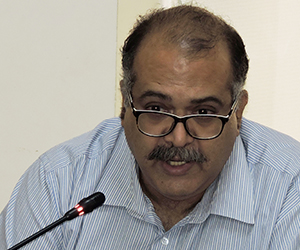
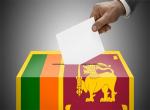

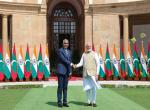

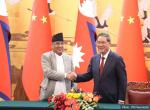
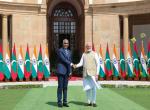


Post new comment